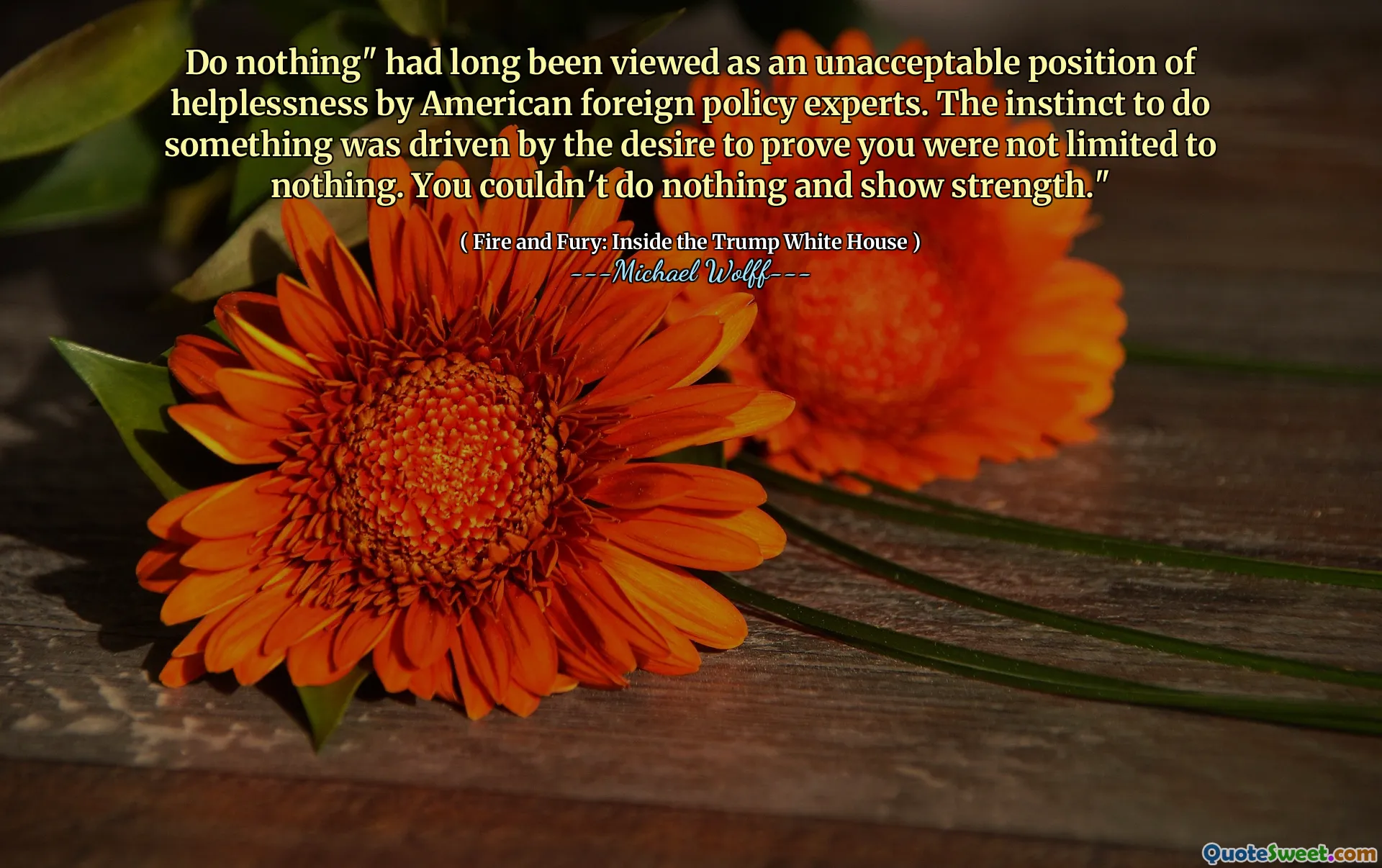
Do nothing" had long been viewed as an unacceptable position of helplessness by American foreign policy experts. The instinct to do something was driven by the desire to prove you were not limited to nothing. You couldn't do nothing and show strength."
The quote highlights a common belief among American foreign policy experts that inaction is synonymous with weakness. They feel compelled to take action, viewing it as a means to demonstrate strength, even in situations where restraint might be wiser. The pressure to respond often stems from a fear of appearing powerless, leading to a cycle where doing something becomes prioritized over possibly more thoughtful or strategic approaches.
This mindset can lead to interventions or policies that may not necessarily align with long-term interests or realistic outcomes. The emphasis on action often overshadows critical evaluation of the situation, potentially resulting in negative consequences. Ultimately, the quote suggests that the instinct to act can be more about perception than effectiveness in foreign policy decisions.











